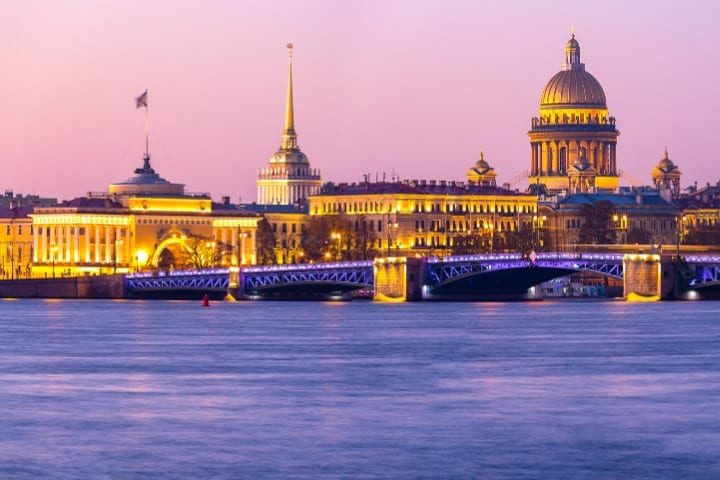
On June 14, Brazilian Deputy Foreign Minister Laudemar Gonçalves de Aguiar Neto said that his country hopes to reach $10 billion in trade with Russia by the time Russian President Vladimir Putin visits in 2024.
“We reached $9.8 billion [in trade] last year. And we are very close to our goal of $10 billion. And we hope that, when the Russian president comes to Brazil in 2024, we will achieve this goal. And we hope we will break this historical record,” de Aguiar Neto declared during the “Russia-Brazil” roundtable session during the St. Petersburg International Economic Forum (SPIEF).
Russia is the world’s largest fertilizer exporter, with Brazil being one of the primary fertilizer importers, the deputy foreign minister continued, pointing out that Brasilia hopes to diversify its trade with Russia and boost investment relations.
In February 2022, during his trip to Moscow, then-Brazilian President Jair Bolsonaro invited Putin to pay a visit to Brazil. Putin accepted the invitation, with the dates of the visit to be finalized at a later stage.
On the eve of the SPIEF, Russian Deputy Prime Minister Viktoria Abramchenko revealed that Russia had signed more than 750 contracts on the exports of grain, oil, and sugar in national currencies in 2023.
“This year alone, more than 750 contracts for grain, oil and sugar have been concluded in national currencies, which is 1.5 million tonnes of products. Most of the deals are with Iran, Syria, Egypt and the CIS [Commonwealth of Independent States] countries,” Abramchenko said in an interview with Sputnik news service on the fringes of the SPIEF.
The Russian minister elaborated that Russia prioritized delivering grains with settlements in national currencies. “If we talk about grain, in the first four months of this year, already more than 5% of exports are in national currencies,” she revealed.
Russia also participated in talks with other countries regarding the export of agricultural products in national currencies.
“We are engaged in negotiations with all friendly countries. In total, our agricultural exports include 160 countries worldwide. And, of course, we are interested in trading in rubles. But the readiness of a receiving country is also important,” she said.
In January, Abramchenko shared with Sputnik that Türkiye had successfully paid for grain in rubles, and pointed out that Russia was working on the matter with Egypt as well.
Kremlin spokesman Dmitry Peskov said that Russia is keen on mutually advantageous collaboration with the United Arab Emirates (UAE) and other countries. “There is absolutely mutual interest in continuing trade and economic cooperation with the United Arab Emirates and other states. Interactions continue, there can be no void here,” he said.
The UAE delegation is one of the most represented delegations at this year’s SPIEF, which lasts from June 14 to 17. The country was invited to join as a special guest, a status that enables it to enjoy a variety of privileges, including an expanded pavilion for a national fair and several tools to attract potential investors. The yearly SPIEF invites only one guest country per year.
On another note, Sri Lanka’s ambassador in Russia announced that Colombo has reached a deal with Russian nuclear giant Rosatom to construct a nuclear power plant that may run two reactors and generate 300 megawatts of energy. “We will go for a nuclear power plant … There are options actually … two sources, 300 megawatts,” Janitha Abeywickrema Liyanage divulged on the sidelines of the forum.
The ambassador added that having its own power plant would permit Sri Lanka to tide over its debilitating energy crisis. Colombo will expedite the approval process to start construction of the plant in the near future.
Besides those from Brazil, the UAE, and Sri Lanka, top-ranking officials from over 15 countries, including Algerian President Abdelmadjid Tebboune, are scheduled to attend this year’s SPIEF, according to Kremlin aide Yury Ushakov on June 14.
“There will be high-ranking officials from more than 15 countries in St. Petersburg…. I would mention the President of Algeria, Tebboune…. As for the SPIEF, he [Tebboune], together with our president, will take part in the main plenary meeting on Friday, make a report and, together with our president, take participation in the discussion, during which relevant questions will be asked,” Ushakov told the media.
The presidents of Armenia and South Ossetia and the prime minister of Cuba will also be in St. Petersburg to speak at the SPIEF opening ceremony, the official continued.
Russian Ambassador to Indonesia Lyudmila Vorobyova told Sputnik at the forum that Russian tourists in Indonesia, including Bali, should not be deterred by sanctions or negative statements.
“The Indonesian authorities and Bali authorities decided to clean up the mess. There are laws of the country, there are immigration laws. If you arrived on a tourist visa, then you cannot engage in illegal labor activities. If you have a visa for a certain period, and you stay in the country for a longer period and do not renew a visa or do not apply for a new one, then this is a violation of the immigration law,” Vorobyova said.
“And when would a Russian person be scared by sanctions? But seriously speaking, most Russian tourists are absolutely law-abiding people who have no desire or intention to break laws or in any way offend the feelings of Indonesians who live in Bali. Therefore, the tourist flow has not decreased, but, on the contrary, continues to increase,” the head of the Russian diplomatic mission stated.
Since 1997, the annual SPIEF has been organized with the support and involvement of Russia’s presidents (except for 2020, when Covid-19 lockdowns were in full swing).
The main theme of this year’s SPIEF is “Sovereign Development” as the foundation for a fair world order. This encompasses talks related to the global economy, technological sovereignty, and labor market challenges.
The overall program is scheduled to include over 150 sessions, master classes, and business meetings.
Participants are poised to discuss the development of Russia’s economy amid widespread sanctions by the cabal of U.S.-led Western nations over the Russo-Ukrainian crisis, and six bilateral business events have been organized within the forum’s framework, in the form of business dialogues with foreign partners from the Arab world, India, China, the Eurasian Economic Union (EAEU), ASEAN, Latin America, and the United Arab Emirates.
Slated to take center stage during the SPIEF is Russia’s “road freight transport” project dubbed “Unmanned Logistics Corridors.” This is expected to give rise to a lively debate on how to tackle challenges posed by unmanned technologies.



